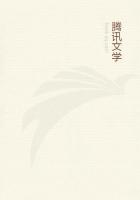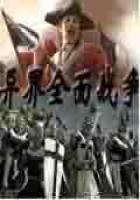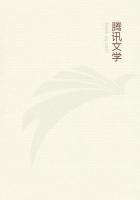The Saxons raised a great shout, and the Danish king rode back to his troops. The lesson which had been given them of the enterprise of the Saxons was not lost, for the Danes at once began to form a camp, raising an earthen bank which they crowned with stakes and bushes as a defence against sudden attacks. This work occupied them two days, and during this time no blow was struck on either side, as the Danes posted a strong body of men each night to prevent the Saxons from sallying out. On the third day the work was finished, and the Danish kings with their jarls made a circuit round the walls, evidently to select the place for attack.
The time had passed quietly in the fort. In one corner the priests had erected an altar, and here mass was said three times a day. The priests went among the soldiers exhorting them to resist to the last, confessing them, and giving them absolution.
The pains which the Danes had taken in the preparation of their camp was a proof of their determination to capture the fort, however long the operation might be. It showed, too, that they recognized the difficulty of the task, for had they believed that the capture could be easily effected they would at once upon their arrival have advanced to the attack.
"To-morrow morning early," Egbert said, "I expect that they will assault us. In the first place probably they will endeavour to carry the fort by a general attack; if they fail in this they will set to construct engines with which to batter the wall."
At daybreak the following morning the Danes issued from their camp. Having formed up in regular order, they advanced towards the castle. They divided into four bands; three of these wheeled round to opposite sides of the fort, the fourth, which was as large as the other three together, advanced towards the entrance. The Saxons all took the posts previously assigned to them on the walls. Edmund strengthened the force on the side where the gate was by posting there in addition the whole of his band. Altogether there were nearly 350 fighting men within the walls, of whom the greater part had fought against the Danes in the battles of the previous year. The attack commenced simultaneously on all sides by a discharge of arrows by the archers of both parties. The Saxons, sheltered behind the parapet on the walls, suffered but slightly; but their missiles did considerable execution among the masses of the Danes. These, however, did not pause to continue the conflict at a distance, but uttering their battle-cry rushed forward.
Edmund and Egbert had but little fear of the attack on the other faces of the fort proving successful; the chief assault was against the gate, and it was here that the real danger existed.
The main body of the Danes covered themselves with their shields and rushed forward with the greatest determination, pouring through the gap in the outer bank in a solid mass, and then turned along the fosse towards the inner gate. Closely packed together, with their shields above their heads forming a sort of testudo or roof which protected them against the Saxons' arrows, they pressed forward in spite of the shower of missiles with which the Saxons on the walls assailed them. Arrows, darts, and great stones were showered down upon them, the latter breaking down the shields, and affording the archers an opportunity of pouring in their arrows.
Numbers fell, but the column swept along until it gained the gate. Here those in front began an attack upon the massive beams with their axes, and when they had somewhat weakened it, battered it with heavy beams of timber until it was completely splintered. While this was going on the Saxons had continued to shoot without intermission, and the Danish dead were heaped thickly around the gate. The Danish archers, assisted by their comrades, had scrambled up on to the outer bank and kept up a heavy fire on the defenders of the wall. The Saxons sheltered their heads and shoulders which were above the parapet with their shields; and between these, as through loopholes, their archers shot at the Danes.
Edmund and Egbert had debated much on the previous days whether they would pile stones behind the gate, but had finally agreed not to do so. They argued that although for a time the stones would impede the progress of the Danes, these would, if they shattered the door, sooner or later pull down the stones or climb over them; and it was better to have a smooth and level place for defence inside. They had, however, raised a bank of earth ten feet high in a semicircle at a distance of twenty yards within the gate.
When it was seen that the gates were yielding Edmund had called down his own band from the walls and formed them in a half-circle ten yards from the gate. They were four deep, as in their usual formation, with the four lines of spears projecting towards the gate. The mound behind them he lined with archers.
At last the gates fell, and with an exulting shout the Danes poured in. As they did so the archers on the mound loosed their arrows, and the head of the Danish column melted like snow before the blast of a furnace. Still they poured in and flung themselves upon the spearmen, but they strove in vain to pierce the hedge of steel. Desperately they threw themselves upon the pike-heads and died there bravely, but they were powerless to break a passage.
The archers on the mound still shot fast among them, while those on the wall, turning round, smote them in the back, where, unprotected by their shields, they offered a sure and fatal mark. Soon the narrow semicircle inside the gate became heaped high with dead, impeding the efforts of those still pressing in. Several of the bravest of the Danish leaders had fallen. The crowd in the fosse, unaware of the obstacle which prevented the advance of the head of the column and harassed by the missiles from above, grew impatient, and after half an hour of desperate efforts, and having lost upwards of three hundred of his best men, the Danish king, furious with rage and disappointment, called off his men.














